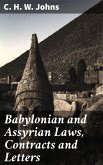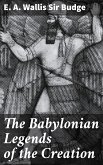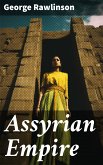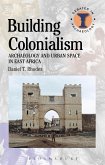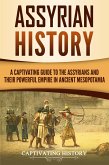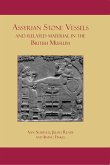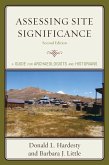In "Babylonian-Assyrian Birth-Omens and Their Cultural Significance," Morris Jastrow meticulously explores the intricate belief systems surrounding birth omens in ancient Mesopotamian societies. His analytical approach combines philological precision with a comprehensive cultural context, shedding light on how these omens influenced daily life, societal values, and religious practices. Jastrow's erudition is evident in his detailed examination of cuneiform texts, which he deciphers with both rigor and accessibility, inviting readers into a forgotten world where the interpretation of birth was a pivotal aspect of human existence and societal structure. Morris Jastrow, a pioneering American scholar of Semitic languages and ancient Near Eastern cultures, draws on his extensive background in academic research and translation to illuminate the complexities of Babylonian and Assyrian life. His career was significantly shaped by an interest in how ancient civilizations understood the cosmos, fate, and the human condition, directly informing his insights into the cultural significance of birth omens. Jastrow's works remain invaluable resources for understanding ancient beliefs and their continuing relevance. For readers fascinated by the confluence of history, mythology, and anthropology, Jastrow's insightful work is a compelling exploration of how birth omens shaped and reflected the worldview of two of history's most influential cultures. This book offers not only knowledge but also a deeper appreciation of ancient civilizations and their rich tapestry of beliefs. In this enriched edition, we have carefully created added value for your reading experience: - A succinct Introduction situates the work's timeless appeal and themes. - The Synopsis outlines the central plot, highlighting key developments without spoiling critical twists. - A detailed Historical Context immerses you in the era's events and influences that shaped the writing. - An Author Biography reveals milestones in the author's life, illuminating the personal insights behind the text. - A thorough Analysis dissects symbols, motifs, and character arcs to unearth underlying meanings. - Reflection questions prompt you to engage personally with the work's messages, connecting them to modern life. - Hand-picked Memorable Quotes shine a spotlight on moments of literary brilliance. - Interactive footnotes clarify unusual references, historical allusions, and archaic phrases for an effortless, more informed read.
Dieser Download kann aus rechtlichen Gründen nur mit Rechnungsadresse in A, B, BG, CY, CZ, D, DK, EW, E, FIN, F, GR, H, IRL, I, LT, L, LR, M, NL, PL, P, R, S, SLO, SK ausgeliefert werden.



